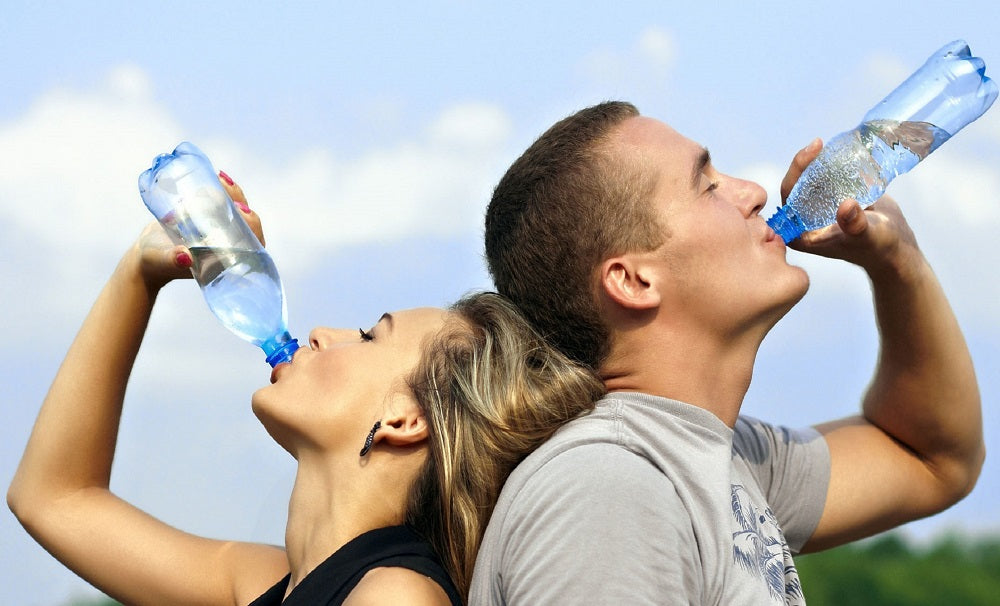
These Differences In Drinking Water Will Shock You
There are so many different types of drinking water both on the retail market as well as natural resources, that one might assume that water is water and they are all equal. All drinking water, however, is not equal. From the way the water is decontaminated to the location it is sourced, drinking water has many differences that may surprise you. Knowing the differences in drinking water can help you make conscious, healthy choices that are aligned with your diet and lifestyle.
Soft Water Vs. Hard Water
Whether the softened water in your home is safe to drink depends on the hardness of your water. If your water is very hard, a large amount of calcium and magnesium will be replaced by sodium, which could get your total sodium level over the maximum set by regulation. Therefore, once the water hardness in your home exceeds 400 mg/litre of calcium carbonate, your water softener will push the sodium level in your water over the threshold. This will occur in a few areas that have extremely hard water. It’s important to research water softeners in your area.
Distilled Water Is Not The "Taster's Choice"
Most people who have tried distilled water notice that it is distinctively bland in taste and texture. The reason for this is due to the process of distillation. Distilled water is created by boiling water and collecting its steam. Boiling the water removes the majority of heavy metals, nitrates, minerals, and microorganisms from the water, which are also the very things that give water its taste. Although you will typically find distilled water on the drinking water aisle, many people tend to use it in everyday cleaning and for steamers, such as the iron. The lack of the aforementioned metals and microorganisms means that it won't interact or damage certain fabrics and materials.
Bottled Water May Not Be As Pure As You Think
Bottled water became popular under the assumption that it was safer and cleaner than tap water. However, some drinking water companies have come under fire for using unfiltered tap water and selling to consumers for a profit. The type of water you get when purchasing bottled water will depend on the manufacturer and the process. Bottled water can be anything from spring water, filtered water, or tap water and it may contain added fluoride. It's important to read the labels carefully and if you are ever in doubt about what minerals or additives are in your bottled water, you can contact the manufacturer or Center for Disease Control.
Drinking Water Doesn't Always Come From A Bottle Or Tap
It has long been thought that safe drinking water had to come through the tap - provided by municipalities - or through a bottle. Research now shows that even individuals living "off the grid" can enjoy clean, healthy drinking water. In fact, in some places drinking naturally-sourced water is more common. The difference between tap water, bottled water and water that is consumed from a water tank is the fact that the former are treated for contaminants, whereas the latter is not and must be tested and boiled to remove any materials or organisms that may be harmful to the body.
The Environmental Protection Agency suggests that individuals who utilize naturally-sourced drinking water should have their water tested annually and more often if they suspect or know of a recent contamination in the area. Naturally-sourced water can come from a hole in the ground, rainwater runoff, or a spring. According to the University of Massachusetts, using natural sources of water can be better for the environment, as it doesn't require damming larger water sources to supply water for a town or city.
Purified Water Goes Through The Most Steps For Decontamination
While all drinking water must go through at least the process of boiling to remove contaminants, purified water tends to go through the most steps to ensure that the end product is not only safe for drinking but pure of any contaminants. Purified water may also be a better choice than filtered water for those individuals suffering from health issues.
As you can see, all drinking water is not created equal. However, this does not mean that one source is better than the other. It just means that there are different types which can serve different needs. There are benefits to each type and knowing the differences can ensure that you are drinking the best water for your body and lifestyle.
Subscribe to our Trusted Health Club newsletter for more information about natural living tips, natural health, oral health and skincare. If you are looking for more health resources check out the Trusted Health Resources list.
Written By:
Mikkie Mills is a freelance writer from Chicago. She is also a mother of two who loves sharing her ideas on interior design, budgeting hacks and DIY. When she's not writing, she's chasing the little ones around, walking her dog, or can be found rock climbing at the local climbing gym.
Reviewed By:
Founder Ray Spotts has a passion for all things natural and has made a life study of nature as it relates to health and well-being. Ray became a forerunner bringing products to market that are extraordinarily effective and free from potentially harmful chemicals and additives. For this reason Ray formed Trusted Health Products, a company you can trust for clean, effective, and healthy products. Ray is an organic gardener, likes fishing, hiking, and teaching and mentoring people to start new businesses. You can get his book for free, “How To Succeed In Business Based On God’s Word,” at www.rayspotts.com.
Photo by form PxHere



